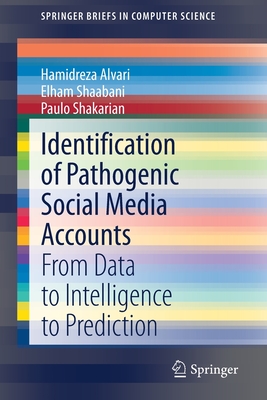Detecting and Mitigating AI-Generated Misinformation: A Professional's Guide
Press, Rosey
- 出版商: Independently Published
- 出版日期: 2024-07-16
- 售價: $870
- 貴賓價: 9.8 折 $852
- 語言: 英文
- 頁數: 28
- 裝訂: Quality Paper - also called trade paper
- ISBN: 9798333306128
- ISBN-13: 9798333306128
-
相關分類:
AI Coding
海外代購書籍(需單獨結帳)
相關主題
商品描述
The rise of AI-generated content has become a significant concern in recent years, particularly in the context of elections. Deepfakes, which are highly realistic videos created using artificial intelligence, have the potential to spread misinformation and manipulate public opinion. This trend highlights the need for robust measures to detect and mitigate the spread of AI-generated disinformation in political campaigns.
AI-generated political propaganda is another growing concern, as it can be used to manipulate public perception of candidates and sway voter opinions. The use of AI in creating fake news articles and social media posts has become increasingly sophisticated, making it difficult for the average person to discern what is true and what is false. Professionals in the field of disinformation detection must stay vigilant in order to combat this threat to democracy.
In addition to political propaganda, AI-generated content is also being used to spread misinformation in other sectors such as healthcare, finance, entertainment, education, cybersecurity, climate change, and international relations. In the healthcare industry, for example, AI-generated disinformation can lead to dangerous misconceptions about treatments and prevention methods. In finance, AI can be used to manipulate stock prices and create false narratives about companies. The implications of AI-generated disinformation in these sectors are far-reaching and require immediate attention.
Professionals working in the field of disinformation detection must develop innovative strategies to combat the spread of AI-generated content. This may involve developing advanced algorithms to detect deepfakes, monitoring social media platforms for suspicious activity, and collaborating with experts in various industries to identify and debunk false information. By staying ahead of the curve and adapting to the changing landscape of AI-generated content, professionals can help protect society from the harmful effects of misinformation.
In conclusion, the rise of AI-generated content presents new challenges for professionals in the field of disinformation detection. From political propaganda to healthcare misinformation, the spread of AI-generated disinformation has the potential to cause serious harm to society. By developing robust measures to detect and mitigate the spread of false information, professionals can help safeguard the integrity of elections, protect public health, and ensure the reliability of information in various sectors. It is imperative that professionals in this field remain vigilant and proactive in their efforts to combat the spread of AI-generated content.











